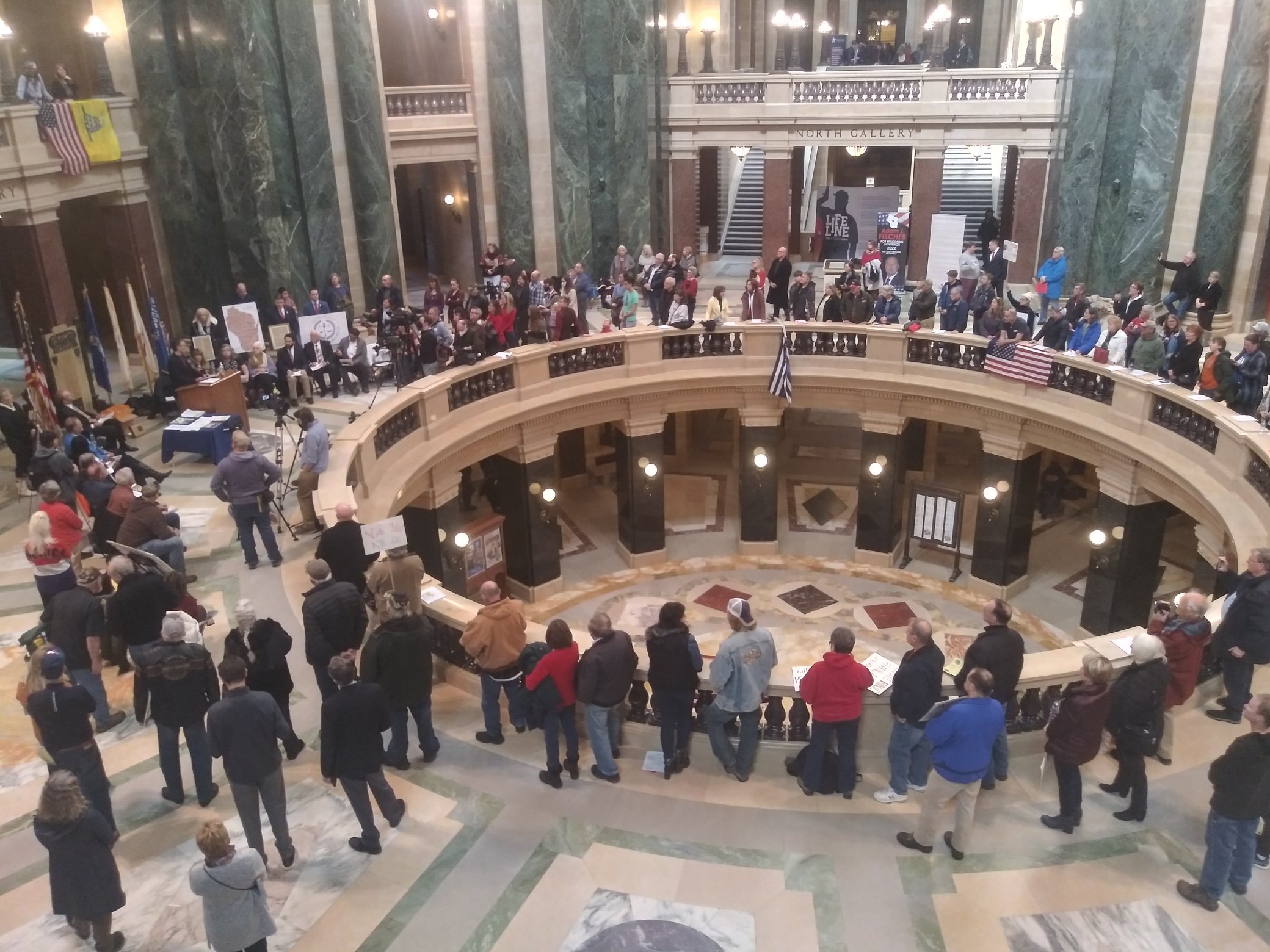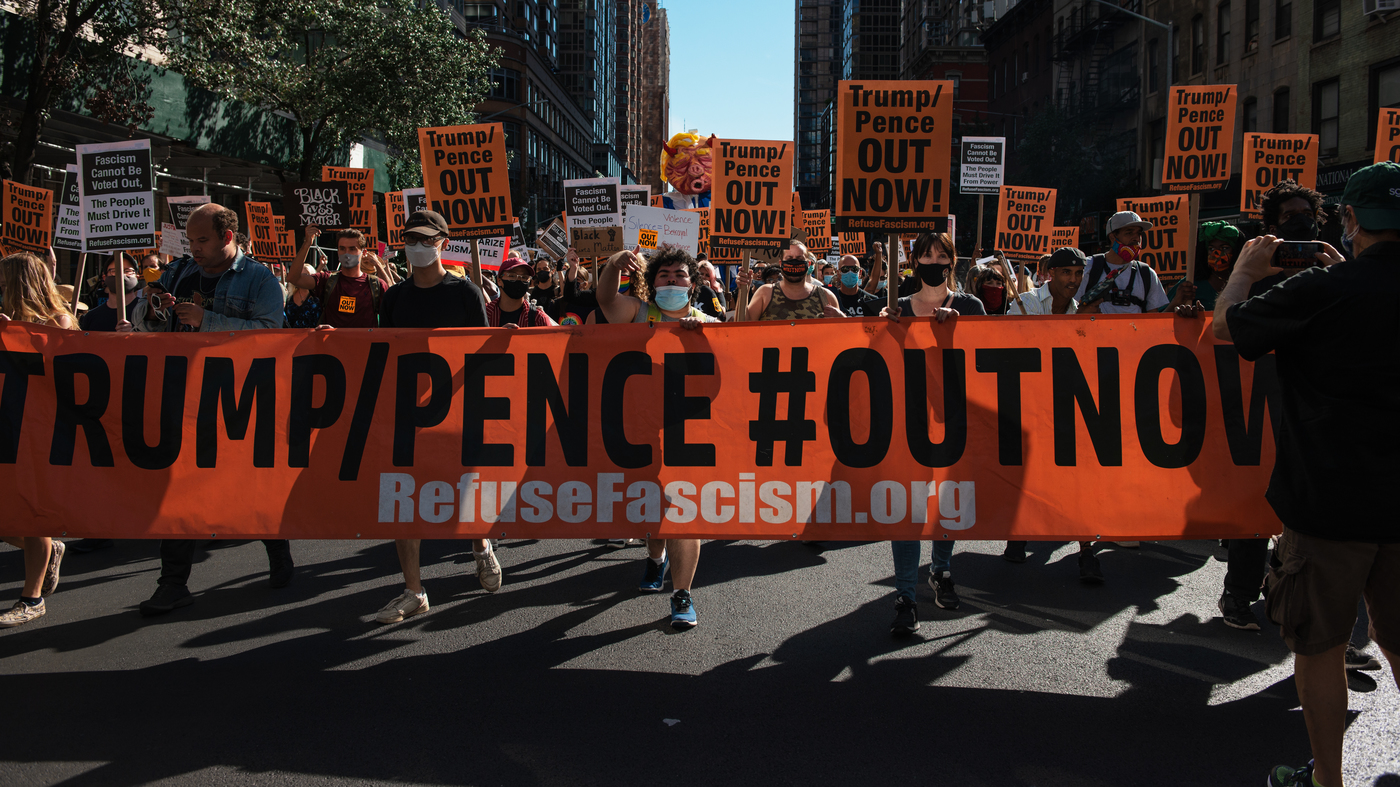Americans must reckon with what the courts failed to resolve.
Listen to the Legislators

Two cheers from—and for—Yoo and Delahunty
Nearly a half century ago, the former left-wing intellectual turned neo-conservative political theorist Irving Kristol published his classic book, Two Cheers for Capitalism, in which he sang the virtues of capitalism, but gave it only two cheers, not three. John Yoo and Robert Delahunty’s recent piece, “Look Who’s Counting,” in The American Mind similarly gives “Two Cheers” to my analysis of the constitutional authority of the Vice President to address illegality in the conduct of the 2020 presidential election.
A “careful consideration of the constitutional structure provides far more support for Eastman’s analysis of vice-presidential discretion than [his] critics appreciate,” they write. They also agree with me “that the [Electoral Count Act of 1887] is unconstitutional insofar as it carves out a role for Congress in dispute resolution or directs the President of the Senate in the exercise of her judgment,” correctly noting that “Congress cannot use the Necessary and Proper Clause as a bootstrap to invade the powers that belong to the other branches,” including “the exclusive powers of the Vice President.” And they quite correctly note that the Vice President’s unambiguous authority to “open” the electoral certificate, and then to count or supervise the counting of them, necessarily implies, as I also argued, a power of “discernment” in the unusual circumstance when the “will” of the State (which is to say, the validity of the certificates), is unclear. For these two cheers, I am much obliged.
Where we part company (and hence, where they give my analysis only two cheers, and for which I give them two cheers in response) is on the question whether 2020 presented the necessary circumstance for the Vice President to exercise his constitutional power of discernment. Before turning to that specifically, it is necessary to correct a few mischaracterizations of the circumstance that in fact presented itself.
Yoo and Delahunty assert that Vice President Pence “concluded that the Constitution left him with no discretion to overturn the results of the popular vote in the disputed states.” That is what Pence claimed in his “Dear Colleague” letter on the morning of January 6 (“Some believe that as Vice President, I should be able to accept or reject electoral votes unilaterally”), to be sure, but as I have made clear previously, see Setting the Record Straight on the POTUS ‘Ask’, Pence was not asked to “overturn the results.” He was merely asked to accede to requests from scores of state legislators to delay proceedings while they assessed the impact of demonstrable illegality in the conduct of their elections and determined whether the existing certificates actually reflected the true results of the election.
Although Yoo and Delahunty quite correctly note that “No slate of electors nominated by a party or other private group can simply certify or self-appoint itself as the state’s electors and thereby trigger a ‘disputed’ election,” that, too, is not the circumstance that existed. Instead, the Trump electors who met on December 14 and cast their votes quite explicitly (in the case of Pennsylvania and New Mexico) or implicitly (in the case of the other five disputed states) cast contingent votes awaiting the outcome of then-still pending legal challenges or other authoritative determination, just as the electors for John Kennedy in Hawaii had done in 1960.
Yoo and Delahunty also claim that “the 2020 elections simply did not give rise to any legitimate disputes over which Vice President Pence could exercise dispute resolution power.” Their claim that “no branches of any state government sent dueling slates of electors” is correct, but their further claims that “no state or federal court found any fraud or error in the state selection of the electors” and that “no legitimate institution of any state or federal government cast doubt on the popular vote” are simply incorrect or, at the very least, incomplete.
Some of the court actions were still pending, and most of the cases were resolved on various jurisdictional grounds without ever reaching the merits of the fraud and/or illegality claims. The Wisconsin Supreme Court’s decision in Trump v. Biden is a good example. The 4-member majority dismissed the action on laches grounds, but the three justices in dissent—the only justices to address the merits—found that the “Democracy in the Park” effort in Madison, Wisconsin (which alone accounted for 17,500 of Biden’s roughly 20,000 vote margin of victory) was illegal under Wisconsin law. That same court also found in another case, Jefferson v. Dane County, that advice given by election officials in the heavily-Democrat cities of Milwaukee and Madison that allowed absentee voters to avoid voter id requirements, which resulted in a nearly 4-fold increase in ballots without voter id, was “erroneous.”
As for other “institutions” of the state governments, a formal subcommittee of the Georgia legislature ought to qualify. Georgia State Senator William Ligon, Chairman of that Committee, issued a report after extensive hearings, which concluded that the results of the election “cannot be trusted,” and that the Secretary of State and State Elections Board “failed to enforce the law as written” and “created policies that contravene State law.” It urged the Legislature to rescind the certification of the election if a majority of the legislature agreed with the report’s findings.
More significantly, scores of state legislators had sent formal letters to Vice President Pence and/or Congress generally outlining the numerous illegalities in the conduct of the election. Here, Yoo and Delahunty mischaracterize my argument as contending “that a group of individual legislators (but not the legislature as a body) could object to the official certification of electors by their state and present another slate of electors.” (Emphasis added). I have never made such an argument. While I agree that these individual legislators were not the Legislature itself (hence the import of the word “institutions” in Yoo and Delahunty’s depiction), there was a reason that the letters were sent from individual legislators rather than the Legislature itself—the Legislatures were not in session, and the governors in each of the contested states refused to call them into special session to address the significant problems with the election that the individual legislators had identified. Whether the legislatures could call themselves into special session in the exercise of their federal constitutional authority when their own state constitutions required action by the governor, is a close call, and one that the Supreme Court is taking up this coming term in Moore v. Harper, which involves the somewhat related question of whether a state’s judiciary can override a legislative determination pursuant to its federal constitutional authority about the “manner” for conducting congressional elections. I had advised that they could, but legislative counsel in a couple of the states had advised otherwise.
But the letters from the legislators did not purport to decide the question, or present another slate of electors. Rather, the letters identified significant flaws in the conduct of the election that warranted, and requested time for, further review by the Legislature. A December 4, 2020 letter to Congress from 15 members of the Pennsylvania legislature found that the mail-in ballot process in Pennsylvania was “so flawed as to render the results of the mail-in ballot process incapable of being relied upon” and “so defective that it is essential to declare the selection of the presidential electors for the Commonwealth to be in dispute.” Another letter of the same date, signed by 75 members of the Pennsylvania legislature and sent to the entire Pennsylvania congressional delegation, identified numerous examples of violations of state election law by the governor, the secretary of state, and county boards of election that “undermined the lawful certification of Pennsylvania’s delegation to the Electoral College.” The letter urged the members of Congress “to object, and vote to sustain such objection, to the Electoral College votes” received from Pennsylvania. On January 4, 2021, a similar letter from the president pro tem and majority leader of the Pennsylvania senate, which was signed by 21 members of the senate and claimed to reflect the views of a majority of the senate, outlined the numerous instances of violations of state law by state election officials and even the judiciary in the conduct of Pennsylvania’s election that thereby usurped the sole power that the legislature has pursuant to Article II of the federal constitution to determine the manner for choosing presidential electors. Because of those illegal actions, the senators noted “that PA election results should not have been certified,” and asked that the Congress “delay certification of the Electoral College to allow due process as we pursue election integrity in our Commonwealth.”
Similar letters were received from legislators in Arizona, Georgia, Michigan, and Wisconsin. Arizona’s included this: “Based upon the clear and convincing nature of the evidence [of illegality and fraud], we respectfully ask that you recognize our desire to reclaim Arizona’s Electoral College Electors and block the use of any Electors from Arizona until such time as the controversy is properly resolved through the pending litigation or a comprehensive forensic audit.” Another letter, dated January 5, 2021 and signed by nearly 100 state legislators from Arizona, Georgia, Michigan, Pennsylvania, and Wisconsin, described the “unprecedented and admitted defiance of state law and procedural irregularities raising questions about the validity of hundreds of thousands of ballots in [their] respective states.” Those legislators asked Vice President Pence “to comply with our reasonable request to afford our nation more time to properly review the 2020 election by postponing the January 6th opening and counting of the electoral votes for at least 10 days, affording our respective bodies to meet, investigate, and as a body vote on certification or decertification of the election.” The state assembly in Wisconsin even passed a formal resolution identifying a number of illegal actions in the conduct of the 2020 election that undermined the ”legitimacy” of the election.
With those mischaracterizations corrected, we can now assess the limited nature of the dispute between us. Yoo and Delahunty contend that, despite the above, “The 2020 elections simply did not give rise to any legitimate disputes over which Vice President Pence could exercise dispute resolution power.” The Vice President does not have authority to exercise any judgment if only a single set of certified votes has been received from a state official with apparent authority to act, they add. It is on that point—and only on that point—where we disagree. Indeed, I agree with them that the circumstances spelled out above did not provide the Vice President with cause to simply reject the electoral votes himself. As I have previously noted (and as even the New York Times has confirmed), I expressly told the Vice President during the oval office meeting on January 4, 2021, that even if he had such power, it would be foolish to exercise it in the absence of certification of the Trump electors by the legislatures of the states. But a short delay of a week to ten days in order to allow the state legislatures to assess the impact of acknowledged and well-documented illegality in the conduct of the election was in my view a reasonable course to insure: 1) that the usurpation of the plenary constitutional authority provided to state legislatures to direct the manner for choosing electors was not outcome determinative; and 2) that the correct results of the election once all legal votes were properly accounted for (and no illegal votes were included in the count) would prevail, thereby ensuring the continuation of the fundamental principle set out in the Declaration of Independence that legitimate governments are grounded in the consent of the governed.
Yoo and Delahunty rightly acknowledge that the framers of our Constitution quite deliberately placed primary authority for determining the manner of choosing presidential electors in the states and specifically in the legislatures of the states. That authority had been usurped. The courts had largely refused to address the usurpation. Requests from legislators to have governors call the legislature into special session had been rebuffed. As Congress was preparing to meet in joint session, those legislatures were coming back into special session and able formally to address the illegality and to determine what, if any, further action was warranted. Because acceding to the requests from a significant number of state legislators to allow that process to occur would have vindicated the principle, as Yoo and Delahunty quite correctly recognize, that the “electoral college system remains fundamentally anchored in federalism,” one is left to wonder why such a federalism option was “flawed,” in their view. Perhaps, as a prudential matter, it was just too late in the day for such a solution, but such a response leaves an overt usurpation of constitutional authority unaddressed.
Perhaps the leftist violence that erupted across the country in the summer of 2020 had its apparently intended effect of preventing anyone from challenging the election results, lest that violence get repeated. One suspects that may have motivated some courts, up to and including some justices of the Supreme Court, to stay their hands. But if that is the concern, then we have succumbed to the threat of mob rule and have already lost the legitimacy of government grounded in the consent of We, the People.
The American Mind presents a range of perspectives. Views are writers’ own and do not necessarily represent those of The Claremont Institute.
The American Mind is a publication of the Claremont Institute, a non-profit 501(c)(3) organization, dedicated to restoring the principles of the American Founding to their rightful, preeminent authority in our national life. Interested in supporting our work? Gifts to the Claremont Institute are tax-deductible.
The Right has yet to Re-Form the Culture.
Capitulating to threats and accusations will teach the Left a dangerous lesson.



